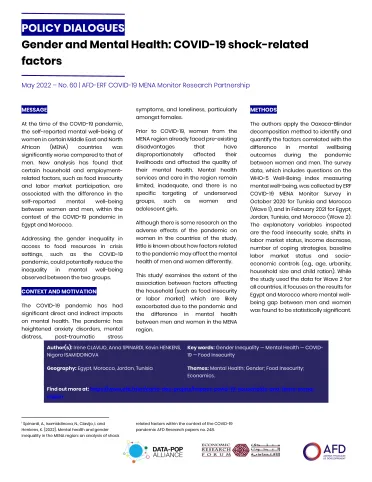Share the page
Gender and Mental Health: COVID-19 shock-related factors
Published on

At the time of the COVID-19 pandemic, the self-reported mental well-being of women in certain Middle East and North African (MENA) countries was significantly worse compared to that of men. New analysis has found that certain household and employment-related factors, such as food insecurity and labor market participation, are associated with the difference in the self-reported mental well-being between women and men, within the context of the COVID-19 pandemic in Egypt and Morocco.
Addressing the gender inequality in access to food resources in crisis settings, such as the COVID-19 pandemic, could potentially reduce the inequality in mental well-being observed between the two groups.
Useful Information
-
Authors
-
Irene CLAVIJO, Anna SPINARDI, Kevin HENKENS, and Nigora ISAMIDDINOVA
-
Coordinators
-
Edition
-
60
-
Number of pages
-
2
-
ISSN
-
in process
-
Collection
-
Policy Dialogues
-
Licenses
-
CC BY-NC-ND
